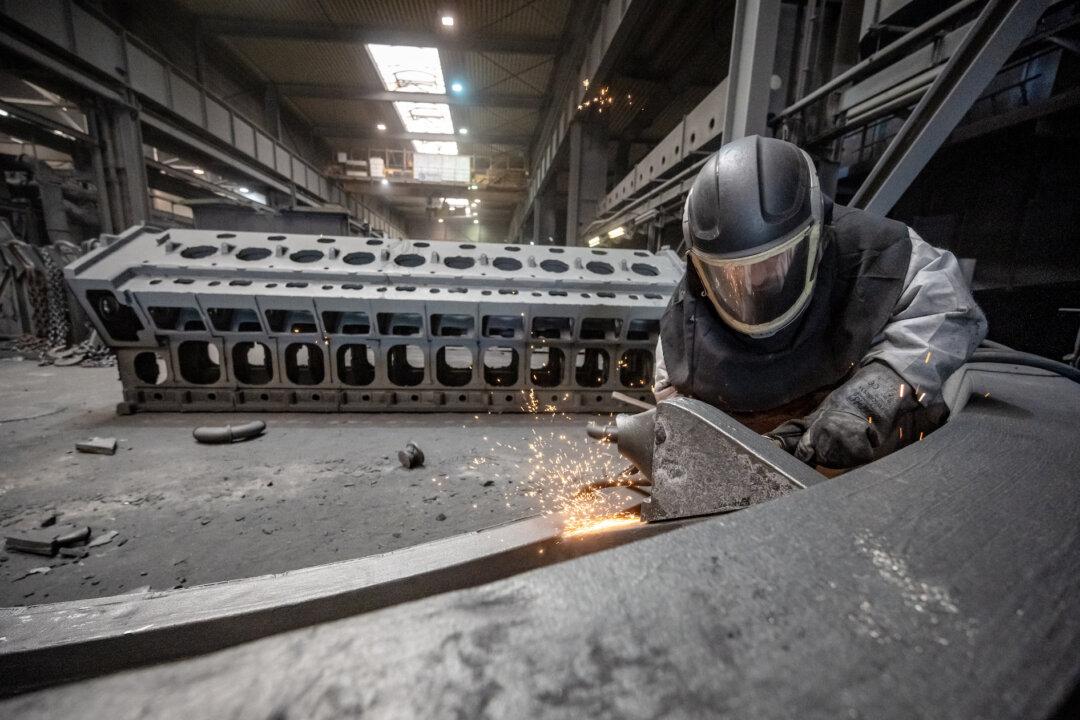German business sentiment slumped in June as headwinds from looming natural gas shortages and soaring prices crimped confidence, prompting analysts to boost the odds that Europe’s biggest economy will be rocked by stagflation.
The closely-watched Ifo business climate index, released on June 24, showed a slump in its current conditions gauge and sharp drop in its forward-looking measure, prompting Ifo president Clemens Fuest to remark that “sentiment in German business has clouded over.”





